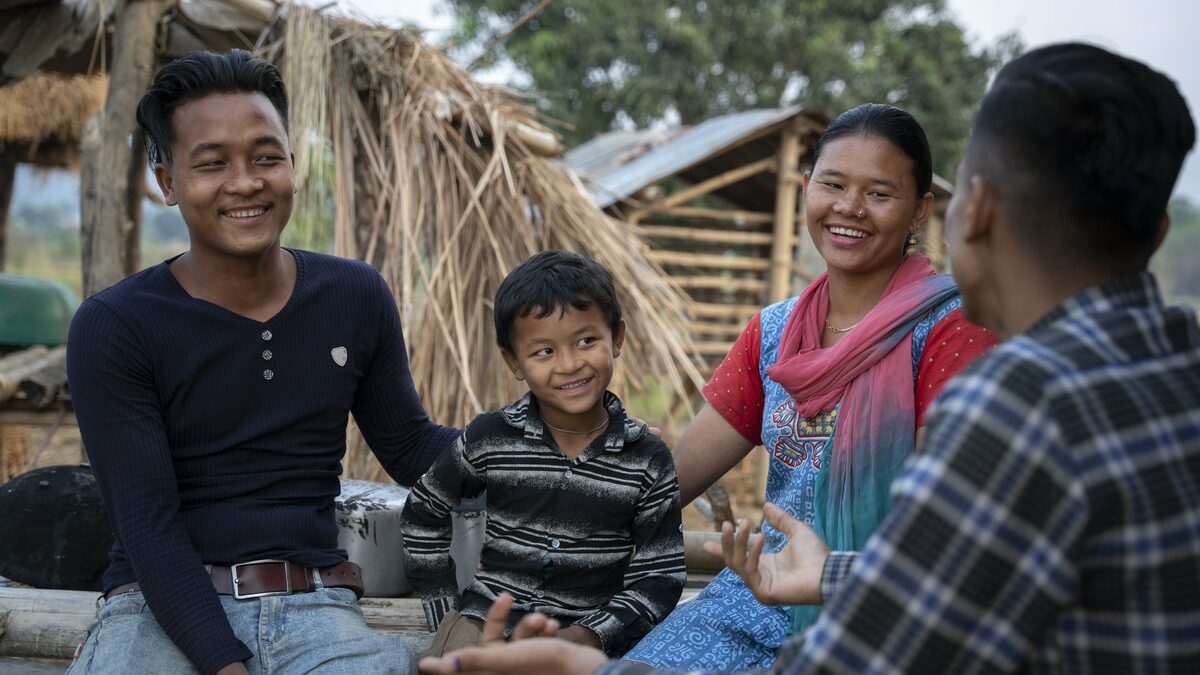We started working in Nepal with local partners Forget Me Not (FMN) and The Himalayan Innovative Society (THIS) in January 2019. Together, we’ve reintegrated 155 children from orphanages into families, enabling the Government of Nepal to close nine illegal and abusive institutions.
Why we work in Nepal
Nepal has an orphanage economy based on voluntourism (tourists volunteering in orphanages) and donations from overseas donors. There are 11,350 children in 489 registered institutions, the majority of them – 74% – along the tourist trail. The children are used to elicit sympathy and money from tourists, volunteers and overseas donors. However, up to 85% of them are not orphans, and have at least one living parent. In some instances, the children are turned into ‘paper orphans’ through fake documents saying their parents are dead or have abandoned them.
Read more about why children end up in orphanages.
What we do
We work with partners in Nepal to develop local authorities’ systems and experience in gatekeeping – preventing children entering orphanages in the first place. We’ve provided training to nine municipalities on children’s rights, the Children’s Act, responsibility for monitoring orphanages, as well as the harms of institutionalisation.
The ‘Change Agents’ programme, which involves raising awareness of the harms of orphanages, has been operating at full scale in nine municipalities since 2020. To date, 28,773 community leaders, parents and children have received information on how orphanages harm children, and where and how to get alternative support. In addition, 1,073 children have benefitted from our direct support, preventing them having to enter an orphanage and keeping them safe at home.
We’ve been working with six Child Care Homes (CCHs) to transition them away from institutionalising children. We have also engaged with 1,749 individuals in sectors which facilitate orphanage tourism, raising awareness of the harms of institutionalisation and volunteering in orphanages.
Our impact
0 1 2 3 4 5 6 7 8 9 0 0 1 2 3 4 5 6 7 8 9 0 0 1 2 3 4 5 6 7 8 9 0
Professionals trained at local and national level
0 1 2 3 4 5 6 7 8 9 0 0 1 2 3 4 5 6 7 8 9 0 0 1 2 3 4 5 6 7 8 9 0 0 1 2 3 4 5 6 7 8 9 0 0 1 2 3 4 5 6 7 8 9 0
Community leaders, parents and children who now know about the harms of institutionalisation
0 1 2 3 4 5 6 7 8 9 0 0 1 2 3 4 5 6 7 8 9 0 0 1 2 3 4 5 6 7 8 9 0 0 1 2 3 4 5 6 7 8 9 0
Children kept safe at home with their families instead of at risk of abuse in orphanages
0 1 2 3 4 5 6 7 8 9 0
Orphanages we're working to close
What we’ve achieved
Since starting work in Nepal, we’ve seen a significant change in the government’s approach to orphanages, moving from a focus on regulating them, to realising that they are inherently harmful and there is a need to eliminate them as a form of care. An informal group of civil society organisations working on child protection and deinstitutionalisation has been established and now meets regularly to address issues related to care reform.
In 2020, for the first time, the government and local authorities introduced national and provincial budgets for reintegrating children from orphanages into families, and for support to enable ‘orphans’ to live in their communities with relatives. THIS has been selected by the National Child Rights Council as a national partner for the provision of transit care and reintegration services for children removed from CCHs and will provide training to government and civil society organisations on reintegration.
Bringing back a daughter
For seven long years, Buddhi Maya had not seen her daughter, Maya, while she was in the orphanage. “Every night when I put my three daughters to sleep, I missed Maya and imagined her sleeping peacefully next to her sisters, but the emptiness always made me cry.” Read how the authorities and FMN reunited Buddhi Maya with her daughter..
Get in touch
If you’d like to talk to us about our work in Nepal, please contact our central office on [email protected]
.

